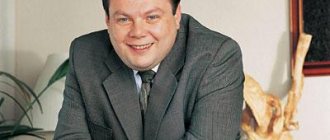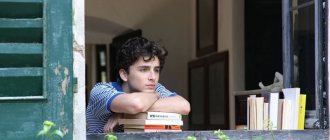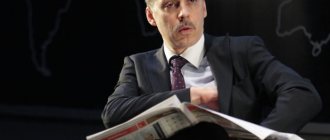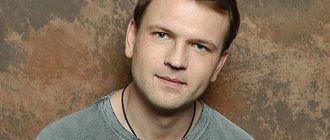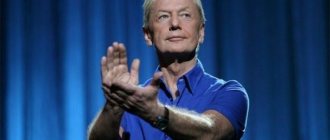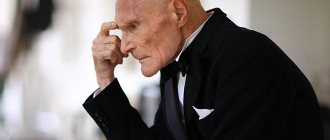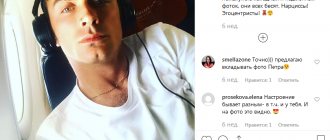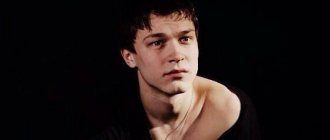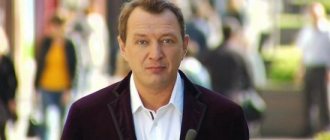Childhood and youth
We’ll start talking about the biography and personal life of Anatoly Kucherena in 1960, when he was born in the small village of Myndra on the territory of the Moldavian SSR. He grew up in a large family. His father worked as an agronomist in the village itself, and later in the “Soviet Moldavia” sanatorium, which was located in a mud resort 60 kilometers from Chisinau.
The hero of our article admits that since childhood he felt a craving for justice. Anatoly constantly separated the fighters, convincing them that in any situation it was possible to reach an agreement.
It is noteworthy that in his youth he sought to find out the origin of his surname, which was extremely rare. But it remained a mystery to him. When Kucherena was in school, his favorite writers were Chernyshevsky, Nekrasov, Mayakovsky, and later Aksenov and Bulgakov.
After graduating from school, he went into the army. He served in the missile forces. He served in Aralsk at the Kapustin Yar training ground, at the end of his service he was already a squad commander.
Early career
In the biography of Anatoly Grigorievich Kucherena, a big role was played by the fact that he began his career in the Moscow Main Internal Affairs Directorate. This happened in 1981. Two years later, the hero of our article entered the Higher Police School, but was unable to graduate. He was expelled and dismissed from the authorities.
In 1987, Kucherena began consulting with the legal department of a fruit and vegetable base in the Brezhnevsky district of the capital, and worked there as a loader at night.
Then he works as a legal consultant, head of the legal department in small firms and enterprises.
Law practice
An important stage in the biography of Anatoly Kucherena was 1993, when he was admitted to the Moscow City Bar Association. At the same time, he begins to cooperate with the first Moscow legal consultation, headed by Henry Reznik.
In 1995, the hero of our article has his own law office; since 2003 it has been called “Kucherena and Partners”.
Other famous trustees
At various times, Anatoly Kucherena represented the interests of film director Nikita Mikhalkov, Taganka artistic director Yuri Lyubimov, singer Joseph Kobzon, former intelligence officer Edward Snowden, and actor Yuri Yakovlev.
The human rights activist led the case of businessman Sergei Lisovsky, who was accused of murdering Vlad Listyev; defended the former Minister of Justice of the Russian Federation Valentin Kovalev after photographs appeared in the media showing him in a sauna with women.
In addition, Kucherena represented the interests of businessman Suleiman Kerimov, who was accused in Belarus in the Uralkali case, and singer Grigory Leps, who was included in the US “black list” due to suspicion of involvement in the hypothetical criminal organization “Brotherly Circle”.
Education
From the biography of lawyer Anatoly Kucherena, it is known that he is heavily involved in science and social activities. In 1999, he presented a dissertation on the protection of human rights and freedoms in Russia (he received his legal education by correspondence in the early 90s).
In 2001, he became the head of the department at the Kutafin Law University, and two years later received a Doctor of Law degree. This time he is defending a dissertation on the role of the legal profession in the formation of Russian civil society.
Since 2005, lawyer Anatoly Kucherena has been a permanent member of the Public Chamber of the Russian Federation. In this body, he heads the commission for control over the activities of law enforcement agencies.
Anatoly Kucherena turns 57 years old
On August 23, Anatoly Kucherena celebrates his birthday. One of the most famous Russian lawyers has long ceased to be just a lawyer - Kucherena’s scope of use of force is so vast that, in addition to professional practice, it also includes teaching work, literary work, and - becoming more and more evident every year - social activity. However, in any of his incarnations, Anatoly Kucherena ultimately proclaims one idea - laws exist to protect people, and not vice versa.
Anatoly Kucherena himself
admits:
“It seems to me that my fate was predetermined: all my skills, knowledge, interests were laid in my youth. Despite the fact that there are no lawyers in my family, I had to choose this profession.”
Young Tolya actually acquired his first skills as a lawyer in childhood - later his peers recalled that as soon as a fight began to boil among the children in the yard, he immediately stood between the disputants, persuading them to resolve the conflict with words and not force.
“As Socrates said, when a word does not kill, then a stick will not help. That is, I had the makings of a defense lawyer, but at that age I did not fully understand the activities of a lawyer.”
, says the lawyer, recalling his childhood experience.
Anatoly Kucherena began to think seriously about devoting himself to serving the law while serving in the army at the secret Kapustin Yar missile site. It is worth emphasizing here that it is the law, and not the law enforcement system. Since he initially entered the Moscow Higher Police School, Kucherena subsequently transferred to the All-Union Correspondence Law Institute. Many considered this decision ridiculous: in comparison with law enforcement officials, lawyers in the USSR were three steps lower in status. However, as Kucheren later said: “... the law absorbed me, and I made the final decision.”
.
The young lawyer had to serve for several years as a legal adviser at enterprises before he was accepted into the Moscow City Bar Association in 1993. New times have already arrived in the country - the legal profession has become in demand and promising, especially for those who are not afraid of publicity, responsibility and difficult tasks. So, in 1996, the aspiring lawyer Kucheren made a name for himself overnight by undertaking to defend Foreign Ministry employee Platon Obukhov
.
Then he was able to prove that the diplomat accused of espionage was mentally ill, which made it pointless to try him. By the way, there were rumors that Obukhov was allegedly made a spy after he portrayed high officials from the Foreign Ministry in an extremely black light in his detective novel. Therefore, it is not surprising that a year later, the Minister of Justice of the Russian Federation, Vyacheslav Kovalev
, captured with the girls in the bathhouse.
The court, however, ruled not in favor of Kovalev, but Kucherena, commenting on the outcome of the case, drew attention not only to the extremely dubious court decision. “All this (the war of incriminating evidence - Ed.) can lead to the most disastrous consequences associated with discrediting the Russian government... An orgy of exposure is ultimately the path to civil war
,” he urged.
This was followed by the trial of the publisher of the Encyclopedia for Children, Svetlana Ismailova.
, which Kucherena managed to get out of prison.
However, it would take a long time to list his clients - there are dozens of stars on this list alone, starting from Joseph Kobzon
and
Yuri Lyubimov
and ending
with Nikita Mikhalkov
and
Grigory Leps
.
On this topic
1196
The actress who accused Weinstein of harassment was convicted of seducing a teenager
Italian actress Asia Argento again found herself at the center of a sex scandal, but this time she was accused of harassment. The actress's partner in the film "Chicks" told the media that he had sexual relations with her when he was barely 17 years old.
The year 2005 became a turning point for Anatoly Kucherena, when by decree of the President of the Russian Federation he was included in the newly created Public Chamber of Russia. At his new post, it fell to him to investigate the terrible case of “hazing” that shook the country at the Chelyabinsk Tank School, as a result of which the young soldier Andrei Sychev
became a legless invalid. After returning from Chelyabinsk, Kucherena and his colleagues in the Public Chamber made several sharp statements about the situation in the army, which resulted in measures to reform the Armed Forces and ensure their openness to citizens. Since then, Kucherena the lawyer increasingly began to give way to Kucherena the human rights activist. Every new case that falls into his hands fully complies with the definition of “socially significant.” Be it a conflict between displaced citizens and developers, an investigation into the beating of children in an orphanage, a demand to tighten control over the lawlessness of auto insurers, or the creation of “people’s” maps of the location of illegal casinos.
“We need to protect those who live by the law. This, oddly enough, is the most vulnerable category of people.”
, - the lawyer-social activist formulated his principle.
No wonder the ancients said: “Our glory runs ahead of us.”
.
In the summer of 2013, CIA officer Edward Snowden,
, asked Anatoly Kucherena to act as his lawyer.
Communicating with his defender, Snowden gained sincere trust in him, telling him everything about his life, views and work in the American intelligence services. The result of these long conversations was the book “The Time of the Octopus,” written by Anatoly Kucherena. Based on it, the famous Oliver Stone
made the film “Snowden”, released in 2020. One of its screenwriters was Anatoly Kucherena.
Isn’t he bored, having such a wide range of interests, to continue practicing law? After all, they say that a talented person is talented in many ways. Moreover, all possible peaks have already been achieved in the field of advocacy...
“I never even had such a thought,
– says Anatoly Kucherena.
– In order to feel comfortable in a profession, you need to love it.
You shouldn’t focus only on money - go where you can realize yourself, achieve success, and really help people. And this decision must be made consciously .
Reference
Kucherena Anatoly Grigorievich. Born on August 23, 1960 in the village of Myndra, Moldavian SSR. In 1983–1985 he studied at the Moscow Higher Police School of the Ministry of Internal Affairs of the USSR, then at the All-Union Correspondence Law Institute (now Moscow State Law University named after O.E. Kutafin). Doctor of Law, Professor. Honored Lawyer of the Russian Federation. Member of the Anti-Corruption Council under the President of the Russian Federation. Member of the Presidential Commission on Personnel Policy in Law Enforcement Agencies. Member of the Russian Presidential Council for the Development of Civil Society and Human Rights. Member of the Public Council under the Federal Security Service of Russia. Chairman of the Public Council of the Ministry of Transport of the Russian Federation. Chairman of the central council of the All-Russian public movement "Civil Society". Member of the central council of the Russian Lawyers' Association. Chairman of the Public Council under the Ministry of Internal Affairs of the Russian Federation.
Notable cases
In the career of lawyer Anatoly Grigorievich Kucherena there were many high-profile and resonant cases. In 1997, he undertook to defend the diplomat and writer Platon Obukhov, who was accused of collaborating with British intelligence. As a result, in 2001 he was declared insane and sent for compulsory treatment to a psychiatric clinic. After two years, he was discharged to undergo outpatient treatment at home. Criminal punishment was avoided.
In 1998, Kucherena led the case of the editor-in-chief of the Encyclopedia for Children, Svetlana Ismailova, who was accused of copyright infringement. The plaintiff was the Avanta+ publishing house. In 1999, Ismailova was released from custody, and the criminal case was dropped as a pre-trial amnesty.
Rokhlin murder case
Already a well-known lawyer from 2000 to 2005. defended Tamara Rokhlina, who was accused of murdering her husband. Many then considered this case to be politically biased and ordered. General Lev Rokhlin, a State Duma deputy, was shot dead in his home in the Moscow region.
In 2000, his wife was sentenced to eight years in prison, but already in 2001, Kucherena achieved the overturning of the sentence through the Supreme Court. In 2005, a new decision was made: she received four years probation.
The European Court of Human Rights, to which the hero of our article also appealed, recognized that the rights of the accused were violated during the investigation. For example, she spent an excessive amount of time in pre-trial detention. At the same time, the ECHR had no complaints about the verdict itself.
Doping scandals
In 2002 and 2003, Kucherena participated in the trial of Russian skiers Larisa Lazutina and Olga Danilova, who were stripped of their Olympic gold medals on doping charges. The case was heard by the Court of Arbitration for Sport in Lausanne, Switzerland. He confirmed the legality of depriving the athletes of their awards.
The case was appealed to the Swiss Supreme Court, which upheld the decision.
Career
Since the mid-1990s, Anatoly Grigorievich’s biography has been inextricably linked with legal organizations and his own law firm, Kucherena and Partners. And by the end of the decade, the man defended his Ph.D. thesis and entered the post of head of the department at Moscow State Law University.
View this post on Instagram
A post shared by Anatoly Kucherena (@anatoly_kucherena) on Aug 31, 2020 at 9:14am PDT
Anatoly Kucherena and Joseph Kobzon
At the same time, the specialist began to deal with scandalous cases and became the defender of the writer Platon Obukhov and Svetlana Ismailova, who violated copyright when publishing the scandalous “History of Arts”. In the 2000s, a lawyer came across the case of the murder of Russian politician Lev Rokhlin, which was considered by the Naro-Fominsk District Court for several years.
At the same time, a native of Moldova represented the interests of athletes Larisa Lazutina and Olga Danilova, who lost Olympic medals due to doping charges, and businessman Sergei Lisovsky, who was suspected of organizing the elimination of Vladislav Listyev and violating the rules of currency transactions.
Resonant processes
Also, at various times, Kucherena represented the interests of entrepreneur Sergei Lisovsky, who was suspected of involvement in the murder of TV presenter Vlad Listyev in 1995, and violations in the financing of Boris Yeltsin’s election campaign during the 1996 presidential election.
He was the defender of ex-Minister of Justice Valentin Kovalev, who became accused in the so-called “bath scandal.” Pictures appeared in the media in which a man resembling the minister spent time with women in a sauna, which, moreover, is controlled by the Solntsevo group.
Among Kucherena’s clients were also singer Joseph Kobzon, artistic director of the Taganka Theater Yuri Lyubimov, public figure and director Nikita Mikhalkov, businessman Suleiman Kerimov (when Belarus accused him in the Uralkali case), Russian pop singer Grigory Leps, whom the United States included in the sanctions list. lists due to involvement in the “Brotherly Circle” syndicate. This is a hypothetical criminal community whose existence has not been proven. It is believed to be involved in drug trafficking and consists of citizens of the republics of the former Soviet Union.
In 2013, he represented the interests of ex-CIA employee, American programmer Edward Snowden. He made public more than one and a half million secret files relating to the operations of the American military on the territory of other states. He fled from America to Hong Kong, and soon arrived in Russia, where he spent more than a month in the transit zone of Sheremetyevo airport. As a result, Russia granted him temporary asylum, and a year later he received a residence permit, which has now been extended until 2020. Currently, Snowden is in Russia, but his exact location is not disclosed for security reasons.
ANATOLY KUCHERENA: “THE CHARGE AGAINST TAMARA ROKHLINA IS COMPLETELY FABRICATED”
Author Editorial Board Pravda.Ru
15.11.2000 12:04
Policy
Today, the Naro-Fominsk City Court may announce the verdict in the case of the murder of State Duma deputy, leader of the DPA, General Lev Rokhlin. In any case, judge Lyudmila Zhilina announced this to the defendant, giving her time to prepare her last word. At these moments, lawyers Anatoly Kucherena and Alexandra Alitovskaya begin their presentations on the case. Tamara Rokhlina will perform immediately after them. But the country will not hear their devastating speeches and calls to acquit the general’s widow.
0 shared
That is why I asked Anatoly Grigorievich to give the theses of his speech and speak about the process. Did it reveal concrete evidence that it was Tamara Pavlovna who, on the night of July 3, 1998, pulled the trigger on the temple of the only breadwinner in the family?
- None! – the famous lawyer said sharply. “The trial once again showed that she did not commit the murder of her husband, with whom she lived side by side for almost thirty years, raised two children, went through 24 garrisons, “hot spots” of the Union, and whom she had been waiting for since two wars. To be honest, I am still in a state of extreme indignation at the demand of state prosecutor Gribinyuchenko to sentence this beautiful woman to ten years in prison to be served in a maximum security colony. And this after she was illegally and unreasonably kept in prison for a whole year and a half, away from her sick child - a lifelong disabled person!
The Prosecutor General's Office caused irreparable damage to the young man's health, which began to deteriorate sharply without daily care and treatment from his mother. Does Mr. Ustinov, who encouraged his subordinate to demand another 10 years of strict isolation for her, understand this?! Is there a limit to cynicism and fanaticism? You know that the prosecutor's detectives have already forced ten people to confess to the murder of Vlad Listyev. It would seem that I have seen so much of their lawlessness, but it turns out that this is not the limit.
I have already said that the investigation did not at all set itself the task of finding the true killers of General Rokhlin, or exploring various versions. For a year and a half, the head of the investigative team, Indyukov, devoted all his efforts to extorting a “confession” from the arrested woman. But, despite worsening illnesses, constant heart pain and attacks of asthmatic suffocation, physical and moral suffering, Tamara Pavlovna did not incriminate herself. Therefore, she was mercilessly rotted in the terrible conditions of the pre-trial detention center.
“Judge Zilina, after reading the indictment, stuffed with insults and insinuations against the defendant, expelled the press and all her sympathizers, including friends and acquaintances, from the courtroom. They say that during the proceedings, “intimate details” of the Rokhlins’ lives may be touched upon...
“She has already announced all the so-called “intimate details,” so her unprecedented decision to conduct the process behind closed doors is not based on anything. My worst fears were confirmed - the secrecy was needed in order, firstly, to hide the facts of arbitrariness and lawlessness that Indyukov’s detectives committed against Tamara Pavlovna for a year and a half. And, secondly, so that the Russian public does not find out that this case, concocted by unscrupulous hands, fell apart in court. The dosed information in some electronic media that “a representative of the Prosecutor General’s Office considers the accusation to be fully proven” only creates fog and does not reflect the materials of the trial at all.
— Anatoly Grigorievich, have the motives been established why Tamara Pavlovna could take up a pistol after a peaceful family dinner in honor of her son’s birthday?
“There were no motives and there could not have been from the beginning, so Mr. Indyukov three times pulled new formulations out of thin air, and each time in a completely opposite way. This “hodgepodge” was reflected in the case and therefore represents a completely indigestible concoction. At first, he tried to make Tamara Pavlovna a “Voroshilov shooter”, capable of hitting a man in the temple with a pistol that she was not holding in her hands. Then the arrested woman was asked to agree to take some unknown pill, after which “she didn’t remember anything.” When this number did not work, the unfortunate woman was thrown into a “psychiatric hospital” for a month and a half, trying to get a conclusion from the doctors that she was mentally ill. This would allow dishonest investigators to pin the murder on her and close the case.
— Is it true that in the first hours after the tragedy, Tamara Pavlovna confessed to the murder of her husband? This topic does not leave the mouths of commentators in some media.
— Imagine the state of moral and psychological shock in which she was. Her husband is shot dead in front of her eyes, and the scoundrels beat her, demanding that she take over the murder. Otherwise they will deal with their son and daughter. What would a real mother do? A wounded lioness rushes to protect her cubs. Tamara Pavlovna, without thinking about herself, rushed to protect her children. And this is the highest manifestation of her maternal feelings, the best evidence of her decency and love for her son and daughter.
During the first interrogation, she committed self-incrimination, also under monstrous pressure from the investigators and all those who received the order to turn her from a victim into an accused. Is it an accident that, having barely shown up at the Rokhlins’ dacha after the emergency, without having yet carried out more than one interrogation, without taking fingerprints from anyone present in the house, without washing off their hands, or traces of gunpowder from their clothes, Assistant Prosecutor General Emelyanov and the investigator Soloviev said out loud: here is a murderer! Atta her! Then this “sensation” was spread throughout the country by media officials. So much for the presumption of innocence!
— And only then did a version of murder with premeditated intentions based on personal enmity appear?
- Absolutely right. However, Volgograd residents A. Raevskaya, S. Vinogradova, General’s orderly A. Penzin and others told the court about the absolutely amazing and touching relationship of this married couple, who raised their suddenly and hopelessly ill son from the cradle to his feet. Not every husband will call his wife in America twice a day to find out how he and Igor are being treated there? Would General Rokhlin have called his “bad wife” from the Chechen front in the first minutes after the capture of Grozny and asked: “Tomochka, how are you there?”
Realizing this, the representative of the Prosecutor General's Office Gribinyuchenko presented to the court another, completely wild version. Just think about it: Tamara Rokhlina was dissatisfied with the rallies that her husband held in defense of the army and the people, saw them as a threat to herself and her son, and therefore decided to get rid of her husband. Well, tell me, isn’t this the fruit of a sick fantasy?
It is quite possible to say that Tamara Pavlovna was always mentally with her husband, helped him prepare documents and appeals of the DPA, because she never separated herself from his cause. The phrase she said is worthy of admiration: “Leva and I were not just husband and wife. We were like-minded people, and this is more than love. We strived for our people to live with dignity.” In a recent interview, she expanded on this idea: President Putin is doing many of the things my Leo dreamed of. If he were alive, they would be close by now.
In general, what problems of the well-being of the family and son could this loving mother and wife “solve” with the shot attributed to her? She served a year and a half in prison for no reason, the property in her house was stolen, her personal savings disappeared. Now he lives alone with his disabled son on his pension of 850 rubles a month. Idiocy squared.
— The investigation put forward the former general’s guards Pleskachev and Sheldeshov, and the driver Krysanov, as the main “witnesses” for the prosecution. How convincing were their testimonies and what did they actually show?
“It’s better to call this trio false witnesses, because during the investigation and trial they were constantly confused, and sometimes outright lied. I’ll say right away: none of them brought a single piece of evidence of Tamara Pavlovna’s involvement in the murder of the general. The investigation used them to confirm their version of “hostile relations.” That is why these young people, who still had time to live, did not hesitate to use insulting epithets addressed to their former mistress, in whose house they lived as sons. She treated them like family: she fed them, dressed them, washed them, and Lev Yakovlevich paid them extra wages from his own pocket. Therefore, their cynical lies are doubly, triple disgusting.
On the night of the tragedy, Sheldeshov slept in the Rokhlins’ apartment on Rublevskoye Highway, and Krysanov and Pleskachev were at the dacha. Both completely lied and clearly said only that they “did not hear” the two shots that took the life of the general, whom they were obliged to guard day and night like the apple of their eye. Especially after Lev Yakovlevich began to receive threats from unknown people demanding that he stop his revelations.
After our interrogations, it turned out that Pleskachev was absent from the crime scene from approximately three to six in the morning. Either he, you see, was washing his shirt at that time, or he was sitting downstairs in the garage and listening to music. To my direct question of where he was, the answer was full of cynicism: “Maybe I was looking out the window.” At the trial, evidence was given of his constant nightly absences on love affairs. And just imagine: after all the nonsense said by this deeply immoral guy, who constantly changed his testimony, the prosecutor Gribinyuchenko publicly declares that they need to be believed. Pleskachev, according to his statement, is the only true witness. What, you ask? The notorious “hostile relationship”? Krysanov behaved just as low, who, it turns out, also “did not hear” either the shots or the screams of the housewife, who was sick from the beatings.
Analysis of their confused testimony allows us to conclude that both were simply not at the dacha at the time of the murder of General Rokhlin. Or they were afraid to tell the court what they were eyewitnesses to, or even worse, accomplices. The fact that Pleskachev, this former contract soldier from Volgograd, over the past two years has managed to thoroughly gain a foothold in Moscow, also gives rise to great reflection. Having missed the murder of his commander, he, nevertheless, was awarded the position of head of the “economic security” of the company. Someone's strong hand provided him with housing and registration, placed him in a prestigious university and issued a registration. Was it by chance that he demonstratively showed up at the trial in an expensive foreign car?
In general, the appearance of these false bodyguards was clearly revealed at the trial. Pleskachev constantly stayed away at night, beat Igor and brought scabies to the Rokhlin family. And Sheldeshov, it turns out, actually suffered from a well-known venereal disease. Lev Yakovlevich wanted to get rid of both, but “they don’t change horses in midstream.” They were privy to all his preparations and, in the event of expulsion, would, of course, reveal the plans for the “peaceful revolution” that he was preparing. Now it’s easy to imagine the degree of moral degradation of the investigators and heads of the Prosecutor General’s Office, who did not hesitate to present these unscrupulous people as morally “main witnesses.”
— Did anything come to light from General Rokhlin’s plans to organize a “peaceful coup”, which Tamara Pavlovna talked about on the pages of a number of newspapers?
“When she asked Sheldeshov: “Maxim, could they have killed him for what Lev Yakovlevich cooked?”, he replied: “They could.” They talked, in particular, about the purchase of weapons and mobile phones. At our request, the judges watched fragments of a press conference at which the DPA leader spoke about the impending assassination attempt on him, and specifically emphasized that his murder would be disguised as a domestic quarrel. This fateful warning came true. One can also say that the huge money from the DPA coffers could be a good bait for crime. But the investigation did not investigate all versions.
- What is this story about the soldier Roman, who suddenly showed up like that piano in the bushes?
“This is a reserve player whom the prosecutor’s office kept on the bench of substitute false witnesses just in case.” Soldier Malkin was on guard duty at the dacha. Now imagine the picture. Security guard Pleskachev, who showed up from nowhere around six in the morning, finds a bloody, dead general in his bed. But it’s not the police, not the FSB, but who do you think? The commander of the nearby repair battalion V. Kiskin. He arrives, also sees his murdered friend in bed and... doesn’t make a fuss either! What's it like? He takes soldier Roman with him and takes him to an unknown direction. All this, excuse me, was reminiscent of covering tracks. Isn’t it significant that after 22 months the Prosecutor General’s Office seems to have forgotten about this Roman? When we reported his disappearance in court, he was immediately found and brought to court. And this guard, who was sleeping behind a glass partition on the balcony five meters from the general, also, it turns out, “didn’t see or hear anything.” All these deaf-blind guards give me very difficult thoughts. Tamara Pavlovna will present her version of their possible participation in the murder of the general in her “last word.”
—Which version of the assassination seems most likely to you?
— It is not the task of lawyers to establish the truth in the case. During the 22 months of the “investigation,” the Prosecutor General’s Office never established it, or rather, did not set out to establish it. The evidence heard at the trial fully confirms the story of my trustee about the murder committed before her eyes by three unknown men in masks. Not a single one of her arguments was refuted - that’s what’s important! The Rokhlins' son-in-law and their son's attending physician B. Shprecher testified separately that at about six in the morning Tamara Pavlovna called them and said: Lev Yakovlevich is no more. I'll take care of everything. More precisely, “these bitches will force me to take everything upon myself.”
Without expecting it, we became spectators of a sensationally revealing scene of a video interrogation, which obviously ended up in court through an oversight. During interrogation, Tamara Pavlovna reprimands investigator Solovyov: “You tore up my first statement. You forced me to take the blame, threatened to imprison my daughter, son-in-law, driver Yura...” What other evidence is needed to talk about the fabrication of this case and the innocence of the defendant!?
What is legally important for us is that her “confessions” were made without written consent to interrogation without a lawyer, and therefore are legally void. You know, there are the basics of criminal proceedings: the testimony of the accused, made in the absence of a defense lawyer, is invalid for the court. It seems that the days of Vyshinsky are over after all. It turns out not really. I petitioned to exclude those “confessions” from the indictment, but the court, in violation of the law, rejected our legal request. Therefore, I leave it to you to judge for yourself the degree of his commitment.
Or such nonsense. Experts found over twenty bruises and contusions on the body of the arrested woman caused by various traumatic objects. According to her, she was beaten like this by unknown thugs who shot Lev Yakovlevich and threatened to kill the children if she did not take the murder upon herself. How did Mr. Prosecutor declare the origin of these injuries? Without hesitation, he stated that these brutal wounds “could have been inflicted” on her by her cellmates. At the same time, the beaten Tamara Pavlovna and her lawyers remained silent the entire time.
By the way, there is a story from an arrested person that Tamara Pavlovna often woke up shouting: “Don’t hit me!” In general, Gribinyuchenko’s speech is not some kind of connected and meaningful chain of evidence, but sheer speculation: “could”, “not excluded”, “quite possible”... Let’s say, there was clear evidence that Tamara Pavlovna herself never opened the self-closing door of the dacha. She was simply unable to do this, because Lev Yakovlevich had equipped the door with a strong and capricious lock. And, therefore, the main link of the accusation collapsed, according to which “having committed murder, citizen Rokhlina went out into the yard and threw the pistol into the bushes.” What kind of nonsense is this? But Mr. Prosecutor went even further, “delighting” the court with an ironclad explanation of this absurdity. They say that there “could have been a piece of iron” next to the door, which the defendant “could” have used to open the door and which then “could” have been lost. Shame and disgrace.
—What sentence are you expecting for your trustee?
- Only acquittal! You cannot decide a person’s fate on the basis of speculation and insinuation. A different decision would indeed be the fulfillment of a political order and revenge for the affairs of her husband.
Interviewed
Alexander GOLOVENKO.
Discuss
Social activity
Kucherena remained a member of the Public Chamber of the Russian Federation from 2005 to 2020. In particular, in this post he was involved in the investigation of the case of soldier Sychev in 2006, when, due to hazing in a military unit, the conscript lost his legs. He took an active part in resolving the conflict between the capital’s authorities and residents of houses in South Butovo, who were forcibly relocated due to planned development.
As a result of those events, he lost a lawsuit for the protection of honor and dignity, which was filed against Moscow Mayor Yuri Luzhkov. In 2010, his conflict with the head of the Moscow City Court, Olga Egorova, caused a public outcry over events surrounding the Rechnik gardening partnership.
Among the lawyer's public initiatives is a proposal to reform the judicial qualification board, dividing it into two parts independent from each other. One composition would hire judges, and the other would evaluate the results.
In 2013, he put forward important proposals related to simplifying the procedures for appealing fines for auto insurers. He made efforts to free Greenpeace activists who were arrested.
In 2020, he became Vladimir Putin's confidant in the presidential elections.
Family
The biography and personal life of Anatoly Kucherena has always been a subject of keen interest to everyone who follows the development of his career. The hero of our article was married twice.
Family plays a big role in the biography of Anatoly Kucherena. The lawyer has an adult son from his first marriage. In 2003, from his common-law wife Olga Maidan, Kucherena had a daughter, Anastasia. Over time, they formalized the relationship. They had another child - son Nikita.
In 2020, it became known that a black streak had come in the personal life of lawyer Anatoly Kucherena. The couple decided to divorce. Olga told reporters that she began to feel that she and her husband had turned into strangers to each other. At the same time, disagreements arose over who their children would live with. Joint custody was not considered, since Kucherena remained in Moscow, and Olga intended to move for permanent residence to Monaco, stating that her children suffered from allergies in the Russian capital.
Anatoly's marriage to Olga
According to the latest news from his personal life, Kucherena was married twice. The lawyer had a son with his first wife. Information about the first chosen one of a famous person is absent on the Internet and in the media. After the breakup, he met Olga Maidan. At that time he already had an adult child. In 2003, a daughter was born from a new girl, who was named Anastasia; the couple was still in a civil marriage. After the birth of his daughter, Anatoly decided to legitimize their relationship, and they got married. After some time, a son named Nikita appeared in the newly-made family.
In 2020, terrible news appeared that a married couple was filing for divorce. According to the wife, the reason for the discrepancy is a discrepancy in characters. The husband and wife became distant from each other physically and spiritually. Disagreements arose between the spouses regarding the separation of children.
Anatoly continued to live and work in the capital of Russia, and Olga decided to go to Monaco for permanent residence and claimed that the Moscow climate had a bad effect on their children. Kucherena was against his son and daughter studying abroad. How old they are now is unknown.

